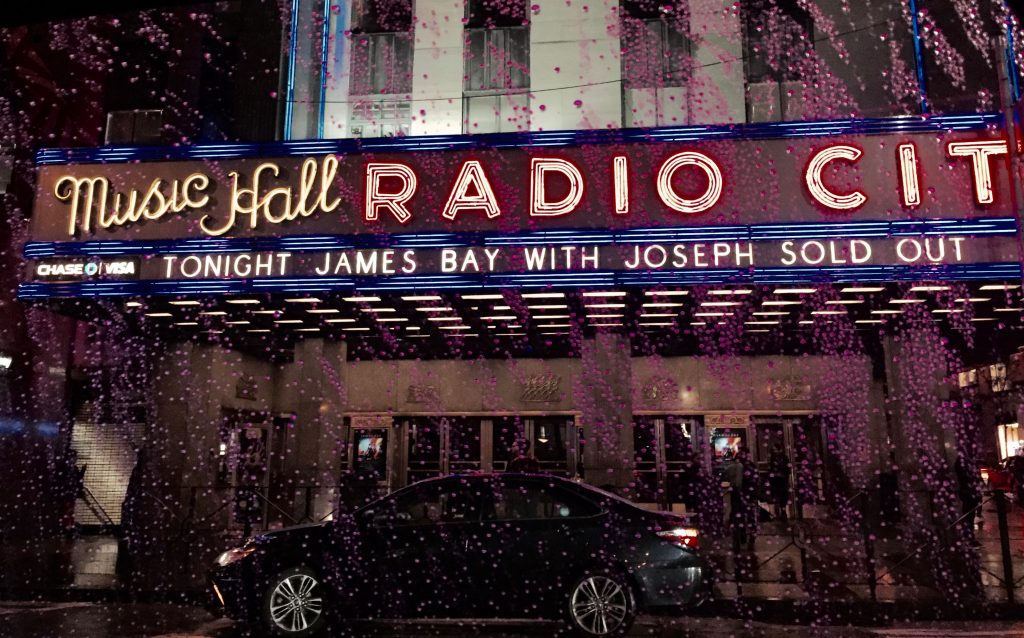Have you ever arranged your entire day to buy tickets see your favorite artist in concert? You set an alarm and rush to the ticket website the moment they come out. Yet, it’s sold out and now there is no other option but to buy tickets over $400. You accept defeat.
Anybody who goes to concerts knows how stressful it can be to secure a ticket. Usually, there’s a presale for certain credit card users, and then the tickets are open to the general public. Ticketmaster, a credible website that most artists use to release tickets, allows potential buyers to sign up for special codes that they can type in to purchase their tickets. However, the process is sometimes selective and there are times when fans aren’t given a code and unable to buy tickets. That’s where the resale process comes in. People will buy tickets off the original website, such as Ticketmaster, and resell them for a much higher price on StubHub, VividSeats, and other sites. Fans are put at a disadvantage because most people can’t afford a $400 ticket in mediocre seats. In the end, fans feel frustrated with the artist for allowing their ticket prices to inflate so high. This raises an important question: should the artist take responsibility for how high their ticket prices are?
Bands and singers that are popular today have built most of their fanbases off of Twitter, YouTube, or even Vine. Social media not only introduces people to new artists, but gives fans the chance to interact with each other and the artist themselves. Without the support of their dedicated fans, performers would not be able to sell out arenas or stadiums. Artists making their ticket prices so high seems like a pretty poor way to repay the people that support them.
Obviously, concerts can’t be free. Artists have to gain revenue from their tour so they can continue to perform and produce music. However, only a handful of fans are able to buy tickets at their face value. A front row seat could originally cost $200 on Ticketmaster, but anyone (including a ticket-bot) could buy it and resell it on StubHub for $1,000 or more. Good seats for popular artists, such as Shawn Mendes, have been known to resell at almost $9,000. Resellers hope that fans will be desperate enough to see their favorite singer up close that they’ll pay just about anything. Yet, this shouldn’t be the case. Artists and their teams should be managing and regulating how much a ticket is sold for on the resale sites. Right now, it almost seems as though performers turn a blind eye to how much fans pay to see them.
Ticketmaster has recognized the problem and organized their Verified Fan program, which is what sends out the codes mentioned above. In their description of Verified Fan on the Ticketmaster website, it clearly states, “Ticketmaster Verified Fan doesn’t guarantee that everyone who is Verified will get a ticket” but it does, “level the playing field.” Artists have the option to team up with Verified Fan — or not. Websites also tend to create a panic among fans when tickets go on sale. Things are constantly reloading, refreshing, and many buyers are put on an online cue. Shouldn’t there be a more efficient, fair way for fans to purchase tickets?
One contributor to the problem is the venue the artist is playing at. A small venue means less tickets, so the process of buying seats is even more frantic. But a large arena doesn’t necessarily mean tickets are cheaper. At MetLife stadium, seats in the upper level — the 300’s section— are around $60 for big names in music, such as Taylor Swift, which is a good deal. However for Z100-iHeartRadio’s Jingle Ball hosted by Madison Square Garden every December, tickets behind the stage start at $300 to $400 dollars.
Besides concert tickets, many artists will also choose to sell meet and greet packages as well. Artists and their teams have been known to charge around $650 dollars for meet and greets. The excitement around talking to and taking a picture with your favorite singer is understandable, but the concept around meet and greets of paying to meet another person is a little strange. Also, it can go horribly wrong if the artist is having a bad day and the interaction doesn’t go as well as the fan hoped.
I am personally a big fan of music and artists. I enjoy going to concerts, and I’ve gotten the chance to meet some of my favorite celebrities for free. After taking a step back, however, I realized that I shouldn’t have to pay $250 for a mediocre seat at a concert, nor pay almost $700 to meet them. Artists continuously say, almost without thinking, that their fans mean everything to them. Do singers care so much that they would create a system that prevents tickets from being resold so that more fans could avoid being scammed? Their fan bases will have to wait and see.
Grace McLaughlin
staff writer
Graphic: Amelia Chen

